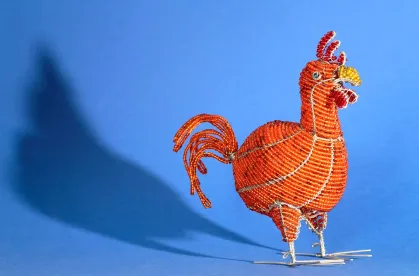Foie gras is a culinary delicacy made from the fattened liver of a duck or goose. It can be produced through a process called gavage in which the birds are force-fed through tubes inserted into their esophagus. Foie gras sales derived from this method were prohibited in California following the passage of a bill in the state legislature in 2004 which took effect in 2012. Foie gras produced in other ways is not banned under the CA law. Soon after the law took effect, Hot’s Restaurant Group in California, Hudson Valley Foie Gras in New York and the Association des Eleveurs de Canards et d’Oies du Quebec in Canada immediately filed a lawsuit to overturn the ban arguing that it was unconstitutional and vague because it does not provide adequate guidance to farmers on how much food they may feed their birds and because sellers cannot determine how much the birds they obtain have been fed in their lives.
The farmers and restaurant owners’ constitutional challenge failed, and the ban was upheld in 2013. But in January 2015, Ninth Circuit, U.S. District Judge Stephen V. Wilson ruled that the state prohibition was preempted by federal poultry standards and enjoined the state from enforcing the ban. The next month (February 2015) the California Attorney General appealed the court’s order lifting the ban.
On September 15, 2017, the Ninth Circuit upheld California’s ban on force-feeding birds to produce foie gras reasoning that the state law was not preempted by USDA’s Poultry Products Inspection Act (PPIA).
More specifically, a three-member panel for the circuit unanimously vacated the lower court’s decision to lift the ban on the sale of force-fed foie gras, lifting an injunction against enforcing the law and remanding the case to a California federal court. The panel found that the California ban did not clash with the PPIA as Congress intended for states to have extensive involvement in regulating poultry products. The panel further found that the California ban did not force foie gras to be made a certain way — rather, it bans “cruelty” to animals. The panel did not accept the farmers’ and restaurant owners’ contentions that the law effectively amounts to an ingredient ban because it requires the production of non force-fed livers.
Notwithstanding the recent decision upholding California’s ban on foie gras, for now, foie gras derived from gavage remains legal to buy, sell and consume in California. The September 15th ruling will not take effect until the appeals process is concluded and a mandate is issued.



 />i
/>i

